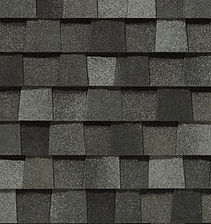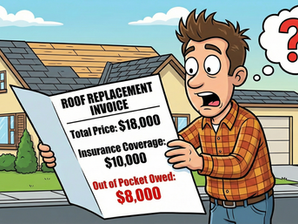Hail Damage Contractors vs Public Adjusters: Who Should You Call First?
- Staff
- Jun 23, 2025
- 3 min read
Updated: 6 hours ago
When a hailstorm hits your home, the aftermath can be overwhelming. Dented siding, cracked shingles, broken screens—it’s not always easy to tell how bad the damage is or what to do next. Two common professionals homeowners often turn to are hail damage contractors and public adjusters. Both play key roles, but their responsibilities, motivations, and methods are different.

So which one should you call first Let’s take an unbiased look at both.
What Does a Hail Damage Contractor Do?
A hail damage contractor is typically a roofing or exterior professional with experience in storm-related repairs. They assess damage to the home, often for free, and provide an estimate for the work. Most will also help walk the homeowner through the insurance claims process and meet with the adjuster.

Pros:
Free inspections and estimates
Industry knowledge about what damage is typical and claim-worthy
Can get repair work started quickly after approval
Most will assist with the insurance process at no extra cost
Cons:
Not licensed to negotiate directly with the insurance company about claim amounts (in most states)
Their motivation is to secure the job, not necessarily maximize your settlement
Quality and ethics vary significantly from contractor to contractor
What Does a Public Adjuster Do?
A public adjuster is a licensed professional who works on your behalf (not the insurance company’s) to assess damage and negotiate the claim. They typically work on commission—often around 10-20% of your insurance payout.
Pros:
Licensed to negotiate claims and challenge insurance company estimates
Generally experienced with policy language and coverage details
Can help maximize your claim, especially in complex or denied cases
Cons:
They charge a fee (usually a percentage of your settlement, typically 10-20%)
They do not perform repairs, so you still need to hire a contractor separately
May delay repairs if involved too early
Feature | Hail Damage Contractor | Public Adjuster |
Primary Role | Repairs damage and assists with claims | Represents homeowner in negotiating claim |
Cost | Usually free inspection; paid for repairs | Charges a percentage of the claim (e.g., 10%) |
Insurance Claim Help | Offers guidance but cannot technically negotiate | Licensed to negotiate with the insurance company |
Starts Repairs? | Yes | No |
When to Use | First step after hail damage | If claim is denied, underpaid, or complex |
Motivation | Wants the repair/replacement work. | Wants to maximize your payout (commission-based) |
State Licensing Required? | Usually requires contractor license | Must be a licensed public adjuster |
Helpful for Complex Claims? | Sometimes | Yes |
So Who’s Better for You: Contractor or Public Adjuster?
It depends on your situation, but for most straightforward hail claims, the hail damage contractor is the better first call.
Here’s why:
If you choose a reputable contractor with insurance claim experience, they can often identify damage and guide you through the process without any upfront cost.
In many cases, your insurance adjuster and contractor can agree on scope and pricing.
You only need a public adjuster if the claim becomes contentious, is underpaid, or denied.
That said, public adjusters are an excellent resource if you’ve already filed and been underpaid, or if the claim involves interior damage, rare materials, or confusing policy language.
The Bottom Line
If you’ve just experienced a hailstorm and suspect damage:
If things hit a wall—like the adjuster denies obvious damage or you feel the settlement is too low—you can always bring in a public adjuster to advocate on your behalf then.
When used at the right time, both professionals can serve you well. But for most homeowners, the path of least resistance—and cost—is starting with an honest, experienced contractor who knows how to work within the insurance process.
If you live within our service area and were affected by any of the recent storms, get started now! Call us at (877) 846-9566 or schedule your free inspection online.

























